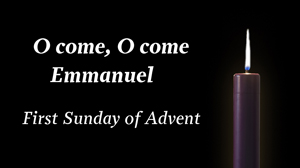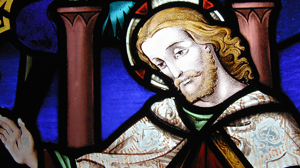Monday of the First Week of Advent
Scripture:
Reflection:
Our Advent Call to Deeper Faith, Rooted in Humility
It’s early December and the sights and sounds of the Christmas season are ever more evident; there’s a special “beauty” as we approach Christmas 2017. The decorations, the inspirational carols and instrumentals we hear these days help put us in a special holiday mood, stirring up the Christmas spirit in these early days of Advent. Our faith in Jesus is foundational to the Life we celebrate at Christmas.
Today’s Scripture readings highlight the power of faith in enriching our outlook and motivating us to increased action. With classic style Isaiah proclaims God’s transformative love, helping us embrace a new world order founded upon goodness and peace…enabling personal and community transformation. Jesus meets a centurion who needed help for his servant who was in very poor health; with faith and humility, the centurion speaks to Jesus of the situation, and Jesus offers to come and visit. As the centurion expresses his faith in Jesus, Jesus highlights his deep faith…and the servant’s miraculous cure took place. Both Isaiah and the centurion recognized God’s presence in their lives, and with humility and faith opened their hearts to God’s action; life was changed, given new meaning!
During these Advent 2017 days we’re encouraged to grow as we pause from the Christmas “hoopla” and seriously reflect on how our faith enriches our relationships with others. With the help of these Advent days and the special Scripture selections, we are challenged to get ever more serious about putting our faith and love into practice…devoting time and energy to prayer that God will be present to us and motivate us to live as true children of God, children of the Kingdom of Jesus. Perhaps…if we have a lasting change of heart and act upon it…the experience of Christmas can flavor every day of the year. We have nothing to lose…and our world has so much to gain!
Fr. John Schork, C.P. is a member of the Passionist community in Chicago, Illinois.







